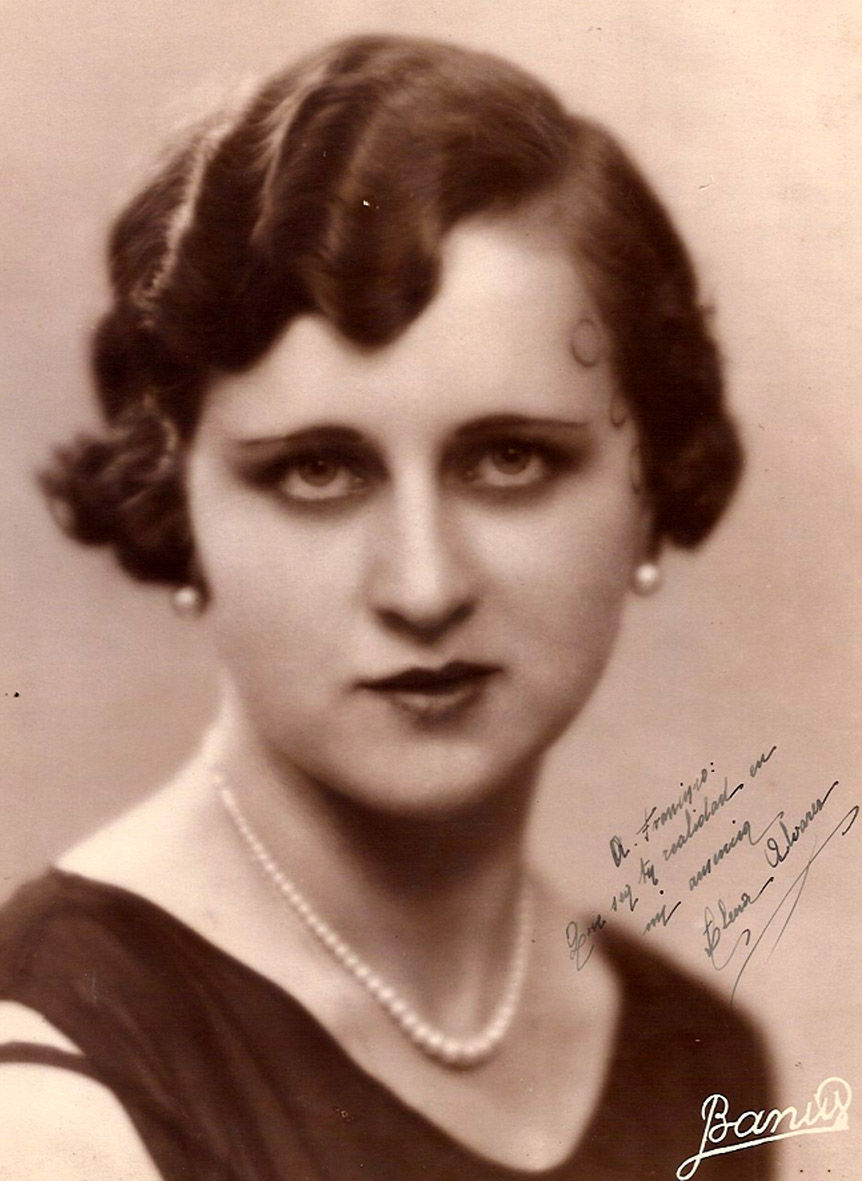During my research for the Asylum essay, I’ve been corresponding with Marie-Rose Ourabah, author and daughter of Francois Tosquelles. I asked her to tell me about her mother, Helene, or 'Elenita'. Here is what she wrote:

My mother was a native of Asturias, d'Oviedo to be exact. She was born at the city's arms factory where her father had a staff apartment. It was a large family, 14 children. Elenita was the twelfth. They were observant Catholics and royalists. There was a strict atmosphere, not to say puritanical, and deadly. The two older sisters died at home of tuberculosis and Elenita’s little sister, the one who came after her, developed a form of tuberculosis, a ‘mal blanc’, of which she did not die, but which handicapped her. My mother was twelve years old when her father died of stomach cancer.
She made the solemn communion (I don't know if this religious ceremony is practiced in England, I do not think so): adolescent girls of this age make a solemn commitment to Catholic faith, dressed in white. For my mother the party was very special because we also celebrated the Mass of Novena for the death of my grandfather. So without his comrades, in a chapel hung in black, herself dressed in mourning. The Spaniards are very demonstrative in solemnity! But you can imagine the emotional impact on my mother. My grandmother, widowed with four remaining daughters, left to live in Barcelona, where her eldest daughter now resided. Elenita entered apprenticeship as a seamstress in a fashion house because in the family, the boys would learn a manual trade that would maintain a household and girls—after an education at the convent, which would make good wives of them—learned sewing or embroidery, feminine crafts par excellence.
Here is my mother, a young apprentice, and my father, a young medical student, who meet in a streetcar. And this is how their history began.

Elenita was intelligent, had character, fairy fingers and knew how to do everything: re-upholstering an armchair, making a man's costume, making something new with old, making sandals for us with recycled rubber soles. Nothing could stop her creative mind. While my father knew how to speak French long before he arrived in France, my mother learned it on the job. My father recognized all of her qualities. He never kept her away from his job, even though she had no professional status other than a wife and stay-at-home mom. When theatrical performances were organized in the hospital for and by the sick, she participated in the choice and the making of costumes, in the make-up of the actors. For the baptisms of my sister and my brothers, she cooked large "showpieces" for the children of Villaret, the children's service. She accompanied her husband in all the Psychiatry congresses, and he always read his writings to her. They discussed films, readings, shows, shared voyages. He trusted her rational mind. It was part of both his marital and professional life.

This photo was taken in Granges-sur-lot, where they finished their old age, close to us. I see the protective arm of our father, circling our mother's shoulder, but I also see the support from our mother to our father, with his health failing. I really like this representation of their union, of their complementarity.
Marie-Rose’s book about the family, ‘À l'Ombre des Poiriers: Hélène et François Tosquelles - Un secret de famille,' is available in French in a print edition and e-book. She describes it as being about “suffering, the vital need to be recognized as a person, and the devastating effect of family secrets.”
Comments